The four seeds from London’s mixed doubles badminton event are returning as top contenders for gold but new power from Korea, Britain, and Indonesia will be spicing things up in Rio.
By Don Hearn. Photos: Badmintonphoto
Of all the badminton events at the 2016 Rio Olympics, mixed doubles is by far the closest in complexion to London four years ago. Three of the four seeds are the same and the one erstwhile seed – which also happens to be 2012 silver medallists Xu Chen and Ma Jin (pictured top) – are still ranked 6th in world and are strong contenders to return to the final.
Along with the women’s doubles, mixed is the only discipline to have been dominated by just two nations since badminton first became a full medal event at the Olympics in 1992. Not coincidentally, China and Korea are providing the top two seeds in Rio. However, we can expect the other perennial mixed doubles powers, Indonesia, Denmark, and England, to to be among those making their presence felt on the courts in Rio.
Double gold medallists past and future?
Top seeds once again are defending champions Zhang Nan and Zhao Yunlei (pictured right) of China. They haven’t been the most convincing of pairs so far in 2016 but this is not something that should be worrying their fans. When they won gold in London, they had only won two major titles so far that year, when they were coming off a stellar 2011.
This year, too, they have picked up only the Asian Championship title, after finishing 2015 strong with their 4th and 5th Superseries victories to go along with their 3rd World Championship title.
Zhao Yunlei, who became the first player ever to win two titles in one Olympic Games, again qualified for women’s doubles. However, she is from the only nation that has the luxury of not selecting the world #3 – Zhao and fellow London champion Tian Qing – and she has been allowed to focus on the mixed doubles.
Her partner Zhang Nan is thus the one with the chance at winning a doubles double in Rio. Technically, four other players do too, but of them, only Denmark’s Christinna Pedersen is seeded, and not in both, as Zhang is.
Already five times in his career, Zhang has qualified for both finals in a Superseries event – four of these occurring last year – but with the new rules requiring him to play six matches, instead of four, before the quarter-finals, it could be extra difficult for him to achieve that double happiness on the Olympic stage. In the top seeds’ favour is the fact that they have a clear advantage over the other pairs in their group (see complete head-to-head stats for the top 10 pairs here). Their one loss to Lee Chun Hei / Chau Hoi Wah (pictured above) of Hong Kong came just before Zhao withdrew from the Superseries Finals last December.
London silver and bronze sentenced to Rio ‘group of death’
Another pair to earn the exact same seeding as four years ago is Christinna Pedersen and Joachim Fischer Nielsen (pictured right). They were drawn in Group B with Europe’s two other top pairs and London silver medallists Xu Chen and Ma Jin.
The Danes, bronze medallists in London, were unable to benefit much from their seeded status when it came to the draws in Rio. While they are the only pair with a losing record against just one other pair in the competition, it was that very opponent, Xu/Ma, whom they will have to face in the round robin preliminary stage.
Xu/Ma, for their part, have winning records against all but the top two seeds and two of the pairs who are winless against the Chinese will have to face them in the preliminary round. They have had their rough patches since winning silver in London but they have the momentum of coming off a Superseries Premier title in their last event prior to Rio.
In all, Group B is very long on experience. The only player in Rio older than Fischer Nielsen is Robert Mateusiak of Poland. Mateusiak and Nadiezda Zieba have reached their present #13 world ranking by playing mostly smaller events since beginning their comeback in the spring of last year. However, they have still won all four matches they have played against present top ten pairs, including against Britain’s Superseries Finals winners Chris and Gabrielle Adcock (pictured), the fourth in the dangerous Group B quartet.
New arrivals from the traditional power
The newest addition to the world’s top four in mixed doubles are Ko Sung Hyun and Kim Ha Na (pictured). They burst onto the scene three years ago with big wins over the Danes, the Brits, and Zhang/Zhao in their first two weeks as a pair (apart from a two-week stint way back in 2011).
Korea is one of the original mixed doubles powers. Only Korean and Chinese pairs have ever won Olympic gold in this event. In fact, when it was announced that mixed would be left off the docket when badminton made its Olympic debut in Barcelona, then All England and World Champion Chung Myung Hee retired, then her partner Park Joo Bong came back from retirement to take a shot at mixed gold in Atlanta.
Ko and Kim suffered something of a drop in form following their first Superseries title, in 2014, and that slump culminated in a dismal outing at the Sudirman Cup last year, when they won only one of three matches. One of the teams that beat them in Dongguan is in their group for Rio but Kenta Kazuno / Ayane Kurihara have felt the full force of the Koreans’ return to form, having lost to the #2 seeds three times this year.
The silver medallist in the all-Korean 1996 final in Atlanta, Ra Kyung Min (pictured), joined the national team coaching staff last summer and Kim and Ko promptly won the Chinese Taipei Open, since which they’ve added five more titles and reached two other major finals. Now ranked a career-high #2 in the world, they are a top contender for the title in Rio and promise an exciting, unpredictable contest against any top pair they confront.
Indonesia’s year?
China and Korea may have dominated Olympic mixed doubles but Indonesia has been threatening all along. Since Ra Kyung Min retired, it is Indonesia that has been the major challenge to Chinese dominance in the discipline, with three World Championship and four All England titles. Indonesian pairs have been the top seeds twice at the Olympics and both times went home with the silver medal.
This year, Tontowi Ahmad and Liliyana Natsir (pictured) again come in as the third seeds but they are joined by world #5 Jordan/Susanto. Jordan and Susanto have not had the greatest of success since snatching the All England title this past spring and they had the misfortune to be drawn in a group with the defending champions and a lower-ranked pair, Lee/Chau of Hong Kong, against whom they have a losing record.
Still, Praveen Jordan and Debby Susanto (pictured) go to Rio having won their most recent match with Zhang and Zhao. Meanwhile, Ahmad and Natsir seem unbeatable by anyone when they are on top of their game, a state they have a habit of attaining at the most prestigious of tournaments. 2016 could well be the year that Olympic mixed doubles finally goes to an Indonesian challenger.
Conclusion
The only pair to have won two Superseries mixed doubles titles so far this year will not be in Rio and Grand Prix Gold success has been similarly distributed. However, even if the field were not as wide open as it is, the outcome would still be impossible to predict. No one knows this better than Korean coach Ra, who had lost only one international match in the three years preceding the Athens Olympics but still failed to medal.
Two nations are responsible for the Olympic mixed doubles golds won since 1996 but in the same period, England, Indonesia, and Denmark have all been in on the action at the World Championships, the All England, and every other top badminton event. All five of these powers have pairs in the top ten in Rio and each of their ace pairs has won at least one major international tournament in the past year.
Anything can still happen once it comes to the Olympic Games. The top contenders have nearly all been beaten by each other and even two pairs ranked outside of the top ten have Superseries titles to their name. The defending champions may again be favourites to win, but they will have to play a long week filled with top-notch badminton to earn another gold.
Click on the above table to see a version with links to detailed head-to-head results.
![OLYMPIC XD 2016 Preview – Familiar faces, familiar flags The four seeds from London’s mixed doubles badminton event are returning as top contenders for gold but new power from Korea, Britain, and Indonesia will be spicing things up in […]](https://www.badzine.net/wp-content/uploads/ngg_featured/20150913_1325_JapanOpen2015_RSAL7637_rotator.jpg)
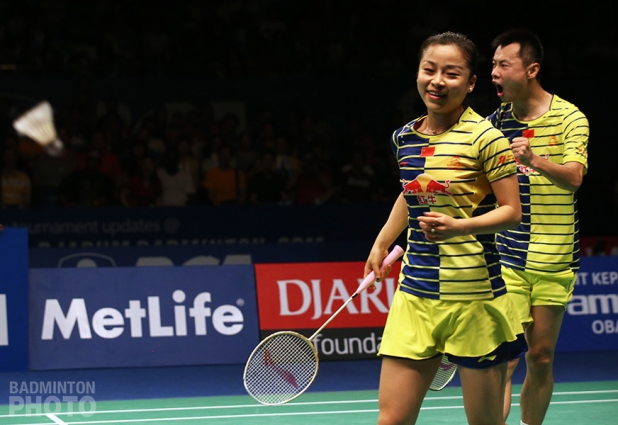
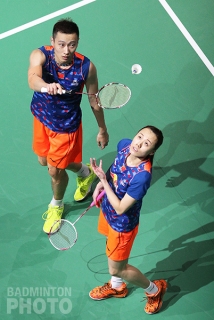
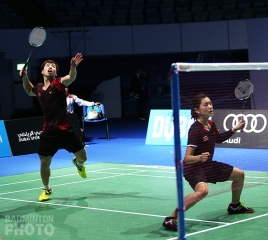
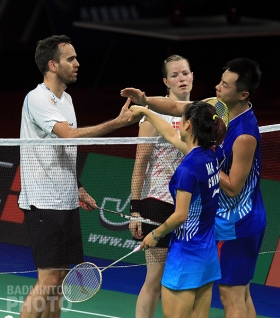
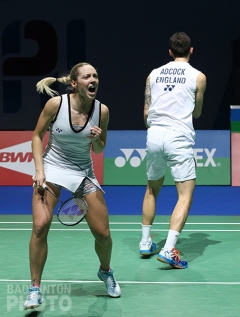
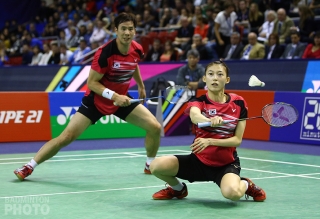
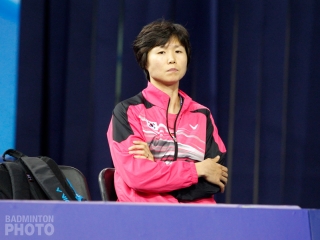
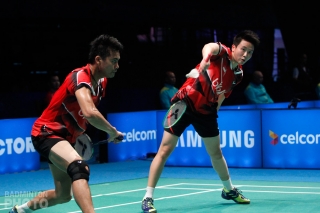
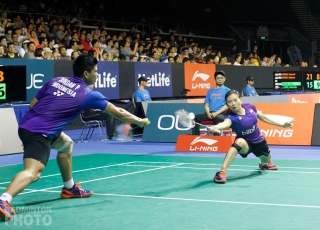
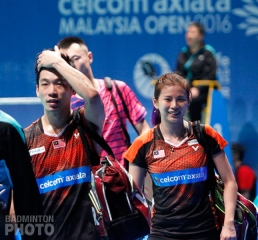
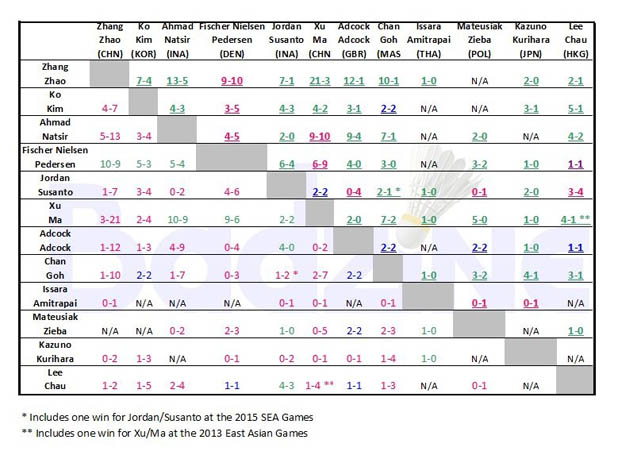
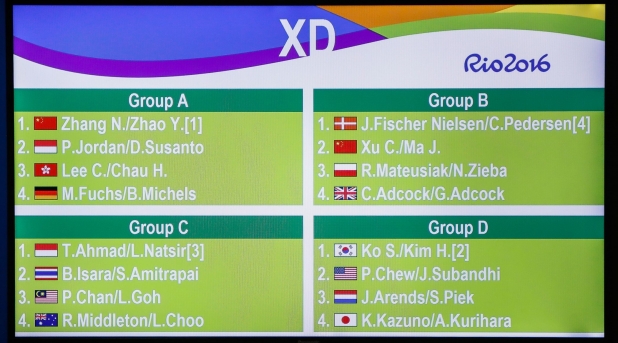

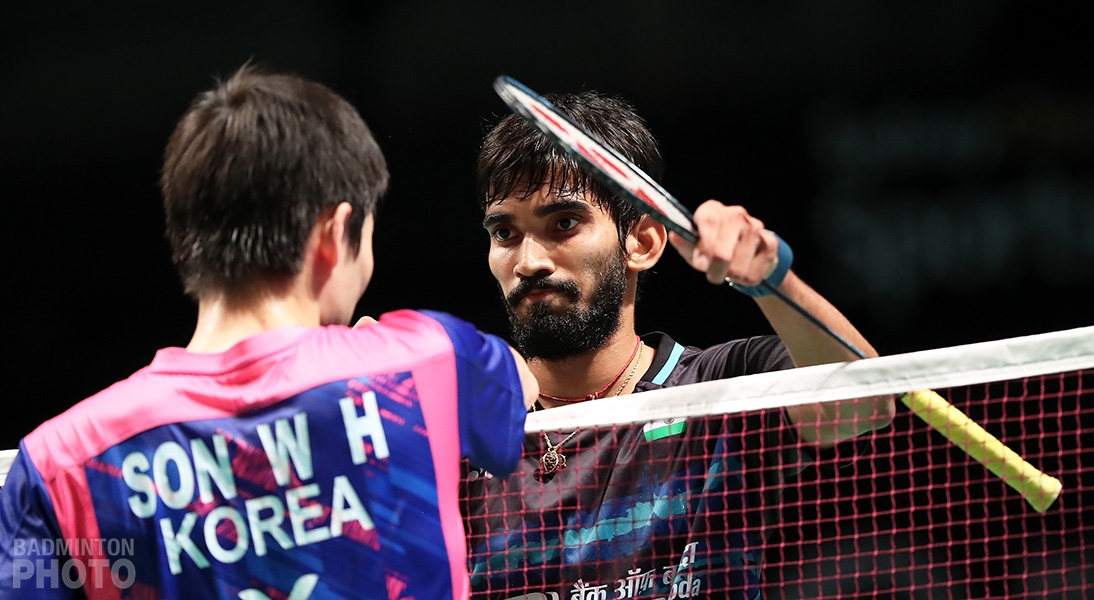
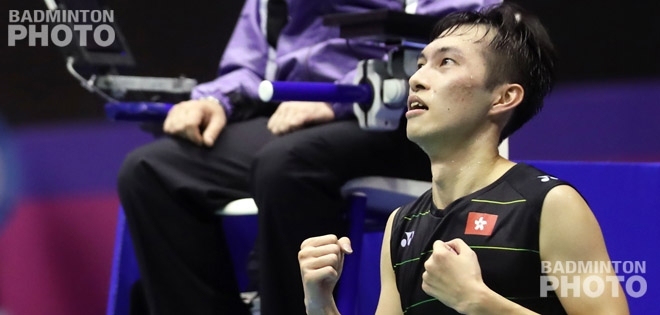
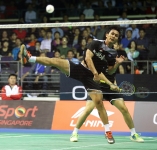
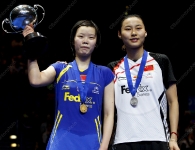
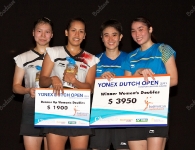
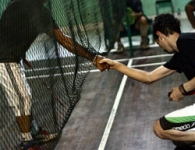
Leave a Reply